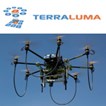TerraLuma Chooses Hyperspectral Sensor For Airborne Missions

University of Tasmania Researchers Utilize Hyperspectral Remote Sensing To Improve the Science of Earth Observation
The TerraLuma Project (University of Tasmania, Australia) is partnering with Headwall Photonics to bring hyperspectral technology to their fleet of unmanned aircraft systems (UAS). Because the richness of imagery data collected via hyperspectral sensing far exceeds that of other methods, TerraLuma is putting Headwall’s Micro-Hyperspec sensor aboard its innovative, multi-rotor SkyJib airframe from Droidworx (Waikato, New Zealand).
Headwall’s Micro-Hyperspec is a high performance, compact sensor that meets the payload restrictions of increasingly smaller UAS platforms while providing the spatial and spectral resolution needed to ‘map’ the environment in better detail than ever. Size, weight, and power-draw (SWaP) are key considerations for any airborne application, which is why Micro-Hyperspec appealed to the TerraLuma team. “Environmental remote sensing and aerial surveying represent the kind of groundbreaking work we’re known for,” said Dr. Arko Lucieer, Team Leader for the TerraLuma Research Group. “Our move to hyperspectral fits with our goal to provide the research community with clear, actionable data that can be captured, managed and delivered faster than ever.”
David Bannon, CEO of Headwall, remarked on the work of Dr. Lucieer and the TerraLuma team is doing: “Remote sensing utilizing a UAS such as SkyJib represents a high-growth area of research because airborne platforms combined with small hyperspectral sensors represents an innovative and cost-effective research approach. We’re very proud to be working with Dr. Lucieer and play a key role as TerraLuma undertakes aerial mapping with our sensors.”
SkyJib is a purpose-built aerial platform, the Terraluma team has adapted it to carry scientific instruments such as Micro-Hyperspec. Precision agriculture, mapping and monitoring vegetation in remote locations, represent some areas of research made possible through the use of hyperspectral sensing.
About Headwall
Headwall, based in Fitchburg, Massachusetts (USA), is a leading designer and manufacturer of hyperspectral instruments for industrial, commercial, remote sensing, precision agriculture, and government markets. Other application areas include medical and biotechnology, forensics, chemicals, and color measurement, and in-line process inspection. Headwall enjoys a market leadership position through the design and manufacture of spectral instrumentation that is customized for application-specific performance, for end users and OEMs.
About TerraLuma
The TerraLuma research project at the University of Tasmania aims to develop novel tools and algorithms for environmental remote sensing applications and aerial surveys using unmanned aircraft systems (UAS). Up-to-date and accurate spatial data are of crucial importance for sustainable management of our ecosystems. UAS offer an exciting and novel opportunity to map the environment in greater detail than ever before. We are a university team of a senior academic, a postdoc, six PhD students, and two technical officers and we specialize in UAS sensor integration and image processing for earth observation applications.
Source: Headwall
